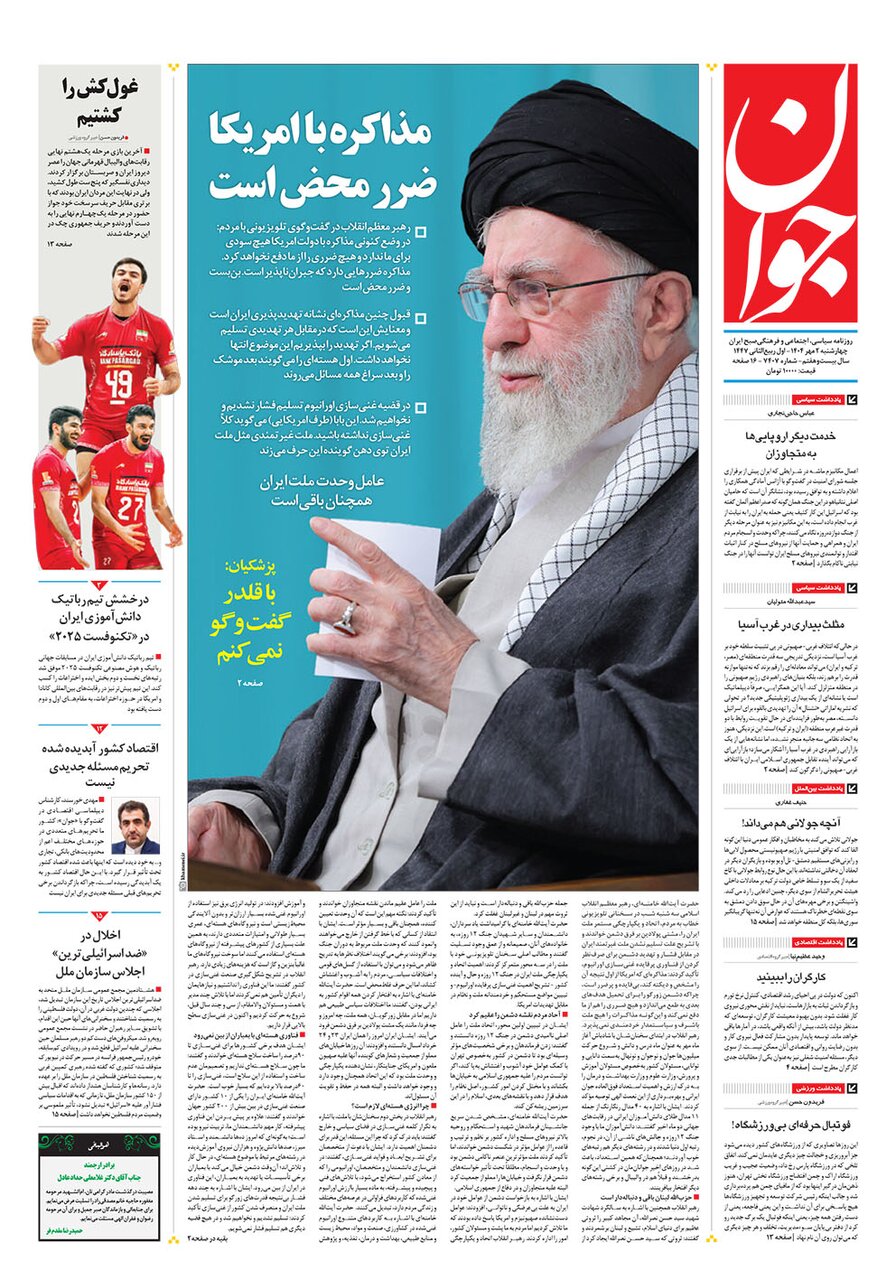Pahlavi is more isolated than before

TEHRAN - In an analysis, Javan discussed Reza Pahlavi's isolation and his failure to strengthen his political base.
It wrote: What happened in recent weeks and months, especially after the 12-day invasion of Iranian soil by the Israeli army, has revealed the rift among the foreign-based Iranian opposition groups more than ever before and put it in everyone's view. Reza Pahlavi, who had tried for years to introduce himself as a "consensus option," this time, by openly supporting Tel Aviv, not only failed to strengthen his political base, but also lost significant parts of his limited base of supporters. His critics in various opposition groups - from nationalists to republicans and even some figures previously close to the monarchist movement - have interpreted this position as "betrayal of the homeland." Despite all this, Pahlavi is still trying to count on one point of support: the support of the Netanyahu regime, but this reliance is more a sign of the political deadlock and the chronic dependence of the monarchist movement on foreign powers than it is an achievement for him.
Resalat: Opportunities and ways to overcome political risks
In a note, Resalat addressed political and economic risks and said: Despite all the challenges, the Iranian economy remains one of the potentially attractive markets for domestic and foreign investors. Extensive natural resources, exceptional geopolitical location, large consumer market, and young human resources are factors that attract the attention of investors. Political and economic risks have always been a serious obstacle to investment in Iran. Sanctions, instability in economic policies, and volatility of rules and regulations are among the main barriers. To overcome these obstacles, there are several key solutions: first, setting stable economic policies; second, expanding regional and international cooperation. Even under sanctions, it is possible to open ways for capital flows through bilateral agreements, barter trade. Third, creating new financial and insurance platforms. Finally, making Iran’s economic environment attractive that will entail a combination of domestic structural reforms in economy and smart economic diplomacy.
Hamshahri: Iran is flexible while preserving its rights
Hamshahri wrote about Iran's approach to the activation of the snapback sanctions and the behavior of the West. It said: Iran is ready for fair negotiations, but it will resist demands that violate its security red lines. As the snapback deadline approaches, there is a risk of escalating sanctions or even new conflicts. Failure of negotiations could push Iran towards strengthening its alliance with Russia and China. This approach could change the regional balance of power and increase tensions. If the West backs down from its unacceptable demands, there is a possibility of returning to the negotiating table. In this regard, Ali Larijani's remarks in a conversation with members of the Iran Chamber of Commerce, Industries, Mines, and Agriculture not only demonstrated Iran's diplomatic flexibility but also revealed the complexities and obstacles of the nuclear and security negotiations and indicated Iran's efforts to maintain a balance between diplomacy and defending national interests. As the snapback deadline approaches, the world will watch Iran’s next choices and the West’s response. Can diplomacy overcome the current impasse, or will the region move towards greater tensions?
Donya-e-Eqtesad: Winner of sanctions return
In an article, Donya-e-Eqtesad discussed the consequences of the return of sanctions. The paper said: It must be noted that the United States will be the most important winner of the return of Security Council sanctions against Iran, because Washington will regain control over these resolutions and will take control of anti-Iran resolutions in the Security Council through the use of the veto. If the United States can gain such effective leverage, it can effectively trap Iran in the Security Council and use it as a means of further blackmail. In such a case, Iran will be forced to pay a higher price for the cancellation of these resolutions. The need to prevent this very negative development requires Iran to try to make the impossible possible in these 7 days. But regardless of the problems that the return of the resolutions will create, the main issue that has received less attention is that the greatest harm of the return of these resolutions will be the serious weakening of hope for the future and the possibility of a positive development in foreign policy, and consequently the facilitation of solving economic and domestic political problems by solving foreign policy issues. In such a case, the crisis that we have been facing for years will be exacerbated.
Leave a Comment